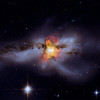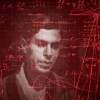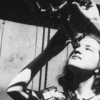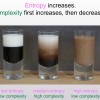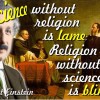Fifty years ago black holes were science fiction. Today they are observational physics and what we see is stranger than fiction. They send us messages about space and time. Black holes form when the matter of a star more massive than our Sun collapses under its own gravity. Other black holes may have formed in […]
Things that go bump in the night: What happens when BIG black holes collide
